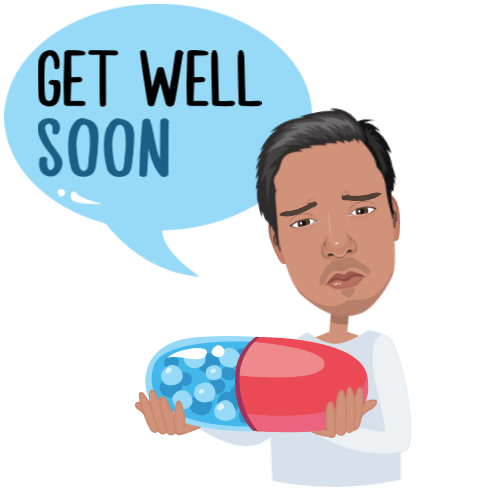Reading Time: 4 minutes
You have been going through some trouble and have seen psychiatrist. If you have been prescribed anti depressants and you are wondering if you should take them, this is the article for you.
Anti depressant – Is a misnomer.
The term anti depressant has most likely outlived it’s usefulness. Over the last 70 years there have been hundreds of medications and molecules that have been developed to treat issues of the brain. Many of these medications are still referred to by the disorder their predecessors treated. In current context an “Antidepressant” relates to a group with a certain mechanism of action. You may be prescribed antidepressants for any of the following conditions in addition to depressive disorder. Not all antidepressants treat depression and all medications that treat depression aren’t antidepressants.
Generalized anxiety disorders
Obsessive compulsive and related disorder
Some personality disorders
Panic disorder
Social anxiety disorder
Phobias
Eating disorders
Post traumatic stress disorder
Personality disorders
Nicotine addiction
ADHD
Bedwetting in children
Irritable bowel syndrome
Long term pain and unexplained physical symptoms.
If you have been prescribed an antidepressant, please talk to your provider to understand how they think it will help you. This will go a long way in helping you understand your illness.
How do they work ?
All modern antidepressants work by modulating the communication between nerves by influencing the release, attachment or re-absorption of chemical messengers. These chemical messengers are termed “neuro transmitters”. Imbalances in these neurotransmitter systems are thought to cause psychological and physical symptoms of mental disorders like depression. All antidepressants exhibit their action via working on serotonin, dopamine and or noradrenaline. Anti depressants do not necessarily enhance neurotransmitter levels but serve to balance their expression.
MYTH – Consuming serotonin rich food can help with depression – Most likely not, since the serotonin you consume cannot reach the brain because of the blood brain barrier. Serotonin is synthesized in the brain by specialized cells.

How will I feel ?
Ideally, in a few days-weeks you will feel lighter, less anxious and much calmer. Disturbing thoughts and the anxiety they cause would have reduced significantly and your ability to focus and concentrate will return. Your appetite and sleep will begin to regularize. On the long run your risk of lifestyle diseases reduce.
How quickly do they work ?
It was previously thought that antidepressants may take up to 6 weeks to start working, however recent studies have demonstrated efficacy in symptom reduction within the first week. This is variable, ideally we wait for 6 weeks before making any changes to the medication.
How long do I have to take them ?
The answer to this completely depends on the nature and severity of your illness. At minimum you will have to be on the meds for period of a few months. In some people due the recurrent nature of the illness or the underlying pathology you may have to be on meds for longer. Psychotherapy in addition to medication has been linked to lower doses and lesser duration of treatment. Though the thought of taking meds long term may sound scary, you doctor will take utmost care that the meds only improve your health and does not damage it. Long term use of antidepressants is proven to be safe and effective via several scientific studies.
What are the side effects ?
All prescribed medication come with the possibility of causing some adverse effects. It is important to remember that this possibility is not certainty. For most people, the side effects are limited to the first few days/weeks of starting the medication or when changing doses. The side effects are often a result of the changing levels of neuro transmitters and not a result of the medicines themselves.
Gastrointestinal problems, nausea, headache, sleep disturbances and an temporary increase in anxiety/ restlessness are the most common. These symptoms often resolve by themselves within a couple of weeks of starting meds. Some people may experience drowsiness. Certain medication can induce weight gain. Report them to your doctor as soon as possible so that they can suggest some steps to keep you comfortable. Some antidepressants are known to cause sexual dysfunction, which is completely reversible. Older antidepressants can cause constipation, dry mouth and palpitations.
Serious side effects are rare and affect very few people. However, it is very important for you to be able to identify any side effects quickly and report them to your health care provider.
Affective Switch – Increased restlessness, dis-inhibition, excessive spending , over-talkative , a decreased need for sleep, sudden mood shifts, grandiose beliefs, uncharacteristic behavior.
Reduced sodium levels – Especially in the elderly. Watch out for headaches, muscle weakness, confusion and difficulty getting up.
Serotonin syndrome – Fever, confusion, diarrhea, muscle twitching, agitation. Associated with taking multiple medication and some illicit drugs.
Suicidal thoughts – In young people (lesser than 24 years old), antidepressants are associated with an increased risk of suicidal thoughts. Studies have shown that these thoughts don’t lead to actions.
It is important for one to be aware of side effects. However, this should not discourage you from taking treatment for your underlying issues. Address your fears with your treating physician before commencing treatment.
Are antidepressant’s addictive ?
The short answer is NO. Antidepressants do not have addictive qualities, you will not crave them nor will they give you a high. However, stopping them abruptly can be quite uncomfortable and may lead to a return of your previous symptoms. It is thus very important to follow your physicians instructions and take the medication as prescribed.
